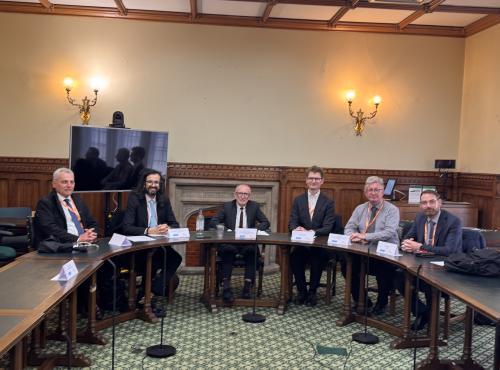Operation Yellowhammer and CO safety
On 11 September, the Government published Operation Yellowhammer, a document outlining its worst-case scenario planning assumptions for a no-deal Brexit.
Last updated on 2 August, the document's analysis includes several points relevant to carbon monoxide (CO) safety. Specifically, I want to draw your attention to assumptions concerning:
- The market’s ability to efficiently provide households with affordable energy; and
- Inflationary pressure in the cost of living and the welfare of low-income households.
Overall, Yellowhammer’s evaluation of the energy sector’s resilience is mixed. The Government claims gas and electricity interconnectors will remain operational in the event of a no deal, and this is buoyed by the EU not taxing energy imports. However, the report also highlights serious risks to the market:
- The report warns that Ireland’s Single Electricity Market could rapidly split in the subsequent months or years, triggering significant electricity price hikes for Irish consumers and creating regional economic consequences (paragraph 5).
- Yellowhammer expects larger businesses to be better-prepared for no deal than their smaller counterparts. This raises concerns regarding the energy security of communities served by smaller firms, such as Independent Gas Transporters, who may be unprepared for no deal (bullet point 5).
- The Government anticipates some cross-border financial services will be disrupted by no deal. This could undermine the Intercontinental Exchange’s influential role in the global energy market and may destabilise crucial indicators such as NBP gas and Brent crude (paragraph 8).
Additional risks not discussed in Operation Yellowhammer include newly-applied tariffs on materials used to build and maintain energy infrastructure (highlighted by law firm Hogan Lovells), and potential devaluations in the Pound’s exchange rate that may affect the cost of imported energy. Additionally, some politicians have shown documents that raise doubts over Yellowhammer’s status as a ‘worst-case scenario’.
Though it is difficult to anticipate specific consequences, as part of contingency planning one must prepare for potential disruptions to wholesale energy prices and the market’s ability to function efficiently. This could negatively affect consumers, for instance in the form of higher prices. This is compounded by Yellowhammer's analysis that food and fuel price rises will disproportionately affect low-income households (paragraph 17). Should this risk materialise, we would expect an increase in fuel poverty, which is a risk factor for CO poisoning. The likelihood and impact of this scenario may be heightened by no deal’s timing, as winter puts additional strain on the NHS and increases the UK’s reliance on (and susceptibility to changing prices of) imported gas.
Given the Government’s efforts to prevent Yellowhammer’s publication and the redaction of paragraph 15, the report’s analysis likely has some credence in the eyes of Ministers. We will therefore continue to monitor these developments closely and work with our Ministerial contacts to ensure progress in CO safety is maintained, regardless of Brexit's outcome.
As always, we encourage you to oliver.buckley-mellor [at] policyconnect.org.uk (get in touch) should you have any questions.




